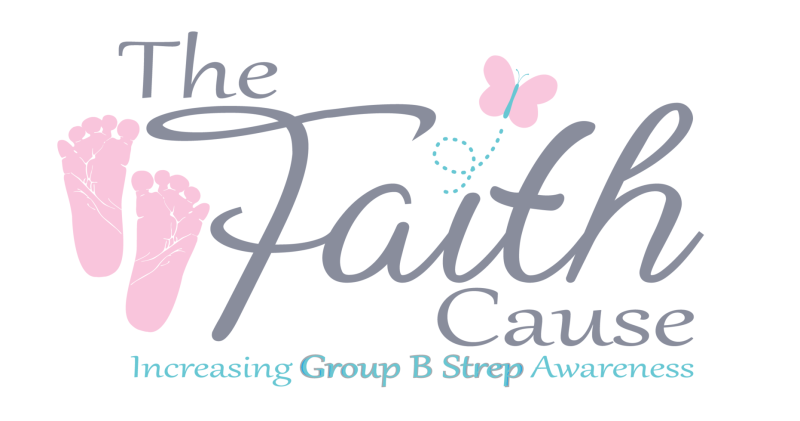
Group B Strep
Group B Strep is a naturally occurring bacterium which approximately 1 in 4 pregnant women carry, usually without symptoms or side-effects. Since there are usually no symptoms of carrying group B Strep, you will only find out you carry it through testing.
Group B Strep usually causes no harm to pregnant women and just because you carry group B Strep doesn't mean your baby will necessarily become infected. Most babies exposed to group B Strep do not become infected. It is not fully understood why some babies are susceptible to the bacteria and develop infection, whilst others do not, but what we do know is for those who do, the results can be devastating and even life-threatening. Babies are usually exposed to group B Strep shortly before or during birth. In the UK without preventative medicine 700 babies a year would develop the group B Strep infection. If group B Strep is passed on to your baby it can cause your baby to become very sick, sometimes resulting in lifelong disabilities or even death.
Prenatal-onset - Group B Strep can cause premature birth, miscarriage and stillbirth, known in the USA as prenatal-onset group B Strep infection (POGBS). Although the term prenatal-onset disease is not used in the UK, it is recognised that group B Strep can cross intact membranes. Group B Strep International advocates that pregnant women receive prompt attention for vaginal infections as group B Strep can cause vaginitis symptoms. Since group B Strep can cross intact membranes, they also advocate avoiding unnecessary invasive procedures and membrane sweeps which can help transport group B Strep closer to the baby.
Early-onset - Two thirds of babies who develop a group B Strep infection show signs in the first six days of life, known as early-onset group B Strep infection. Of these, almost nine out of every ten show signs within 12 hours of birth. It usually causes septicemia or pneumonia, less frequently causing meningitis.
Late-onset group B Strep infection occurs after a baby's first six days of life and usually causes meningitis and septicemia. It is uncommon after a baby is one month old and very rare after three months old.
The good news is most group B Strep infections in babies can be prevented with prompt and appropriate treatment. By identifying those carrying group B Strep through testing, over eight out of ten cases could be prevented if antibiotics were given in labour to all mothers testing positive for group B Strep and to mums with recognised risk factors.
Some pregnant women are at higher risk of having a baby with group B Strep. The factors that increase risk include:
- Testing positive for group B Strep late in the current pregnancy (35-37 weeks gestation)
- Having group B Strep in urine during the current pregnancy
- Delivering early (before 37 weeks gestation)
- Developing fever during labour (above 37.8C)
- Having a long period between water breaking and delivering (over 18 hours)
- Having a previous baby who became infected with group B Strep
Group B Strep is the most common cause of life-threatening infection in newborn babies and the most common cause of meningitis in babies under 3 months - these infections are usually preventable.
On average, one newborn baby a day in the UK develops group B Strep infection. One baby a week dies from group B Strep infection. One baby a fortnight who survives the infection is left with long-term disabilities.
The ECM test costs around £35 for a home testing kit if ordered privately. It's hard to believe that if the NHS routinely tested pregnant women using the ECM test around 35 - 37 weeks, over 80% of these infections could be prevented by administering a simple antibiotic to the mother as soon as possible once her waters break or labour starts.
With a disease as serious as GBS, prevention is much better than treatment. The best preventative treatment for GBS developing in newborn babies is giving intravenous antibiotics (to the mother) during labour. When given from the start of labour or waters breaking (and ideally 4 hours before delivery), this has proven to be very effective at preventing GBS infection in the baby. Sadly, waiting to give antibiotics to the baby after delivery will sometimes be too late.
See gbss.org.uk prevention strategy here
GBS is a fast-acting type of bacteria so it is imperative that everyone who takes care of your baby knows the symptoms of possible GBS infection in babies and how to respond.
To learn more about group B Strep and how to recognise its symptoms and help prevent its devastating effects please visit:- www.gbss.org.uk, www.groupbstrepinternational.org
All you need to know about GBS
The-facts-about-group-B-Strep-in-pregnan[...]
Adobe Acrobat document [324.4 KB]
2014_12_12-Protect-Leaflet.pdf
Adobe Acrobat document [468.9 KB]
Common-tests-for-group-B-Strep-in-pregna[...]
Adobe Acrobat document [684.4 KB]
GBSS_Congratulations_Leaflet.pdf
Adobe Acrobat document [1.2 MB]
Prevention-strategies-for-early-onset-gr[...]
Adobe Acrobat document [134.8 KB]
Risk-factors-for-group-B-Strep-infection[...]
Adobe Acrobat document [624.1 KB]
Understanding-your-babys-group-B-Strep-i[...]
Adobe Acrobat document [1.2 MB]



